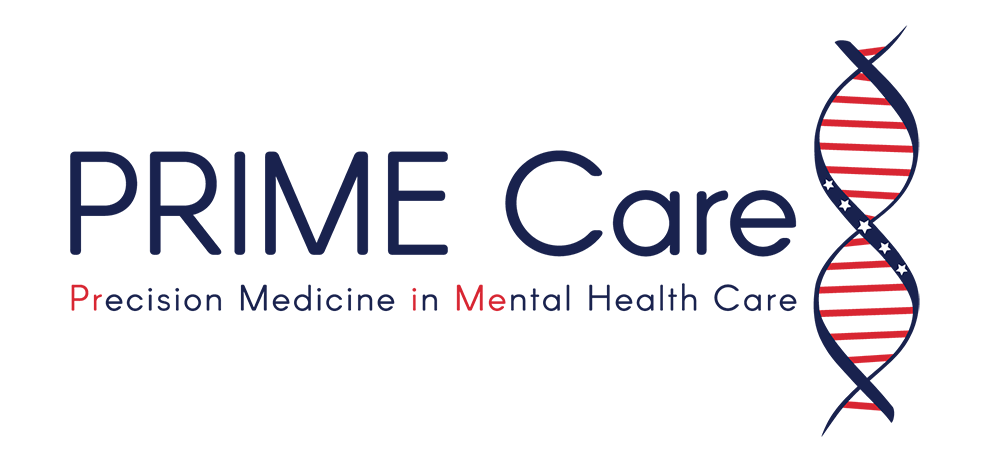PRIME Care Study

PRIME Care Providers' Frequently Asked Questions
Q: Does the company store samples?
No. Assurex destroys the study samples once the genetic testing is complete. For both the immediate and delayed results groups, the samples are processed upon receipt and then destroyed.
Q: After reviewing the genetic test results, if the medication that appears to be the best choice is not on the formulary, can I still order it?
If all available information points to a non-formulary medication as the best option, you should follow local pharmacy procedures to request it. In your request, be sure to spell out the medical logic for choosing to prescribe this particular non-formulary medication, which of course can include the fact that the patient’s genotype is one of the factors that was considered in this decision. In our experience, it does not help to use study participation as the reason for the request, but rather that you are prescribing this particular medication because you believe it is the best choice for this patient based on your clinical judgment, which can include pharmacogenetic information.
Q: The genetic test results for one of my patients has all of the medications in the green bin. How are these results useful?
When all of the medications on a patient’s genetic test report are in the green (“use as directed”) column, you know that gene-drug interactions are not a limiting factor in medication selection. The medication selected based on other factors (e.g., the patient’s current medications, prior medication adherence, family history) can be prescribed at the usual dose. It also indicates that if the medication selected is not an effective antidepressant, or is not well tolerated, there are a number of other medications from which to choose that will not be affected by gene-drug interaction.
Q: The medication I really want to use is in the red column. Can that medication still be prescribed, and if so, how do I explain to my patient that the red column does not mean, “Stop - do not use?”
Yes, a medication in the red column can usually be prescribed, but adjustments in dose are likely to be necessary. Review the footnotes for each medication for specific dosing considerations and use with increased caution and with more frequent monitoring. You can explain to the patient that the genetic test indicates that due to their genetic profile, there is a significant chance his/her body may react differently to medication “X.” These medications can still be effective, but based on the test results, you are going to prescribe the medication at a higher/lower dose.
Q: Will the genetic information on which the report is based change as a patient ages?
The genetic test results will be valuable throughout the patient’s lifetime and are stable findings. What may change in the future is the interpretation of the genetic information and the discovery of other important genes. However, the clinical interpretation of this set of genes is unlikely to change over the next several years and may be considered anytime your patient has a change in psychotropic medications, not just antidepressants.
Q: Why do some medications seem to appear more frequently in the green bin?
Some medications are more likely to be found in the “green bin” than others. This is because these medications are either not metabolized in the liver by the Cytochrome P450 enzymes, which have multiple functional polymorphism, or they are metabolized by a number of enzymes, which would require multiple inherited gene-drug interactions in order to adversely affect outcome. The same is true for medications that target transporters or receptors that do not have functional polymorphisms; these drugs are also less likely to fail because of drug-gene interactions. So, when treating someone who has not done well on several antidepressants in the past, you may have more success if you select a “green bin” medication, because you can be reasonably confident that the patient would not run into trouble due to a drug-gene interaction. However, the art and practice of psychopharmacology is not limited to picking medications from the “green bin,” as there are also important drug-drug interactions and drug-person interactions (for example, renal function or cardiovascular health) that are not predicted from a PGx profile.
Q: I got the results back, but I did not find the results to be helpful. How often are the results informative?
We first need to consider what is helpful. “Helpful” likely means that metabolism of either the medication the patient was already on (in cases of switching) or the medication you intended to use was found to be highly genetically influenced. This finding is helpful because it means this medication would need to be dosed very differently than typically used. It may be easier for the provider and patient, given the choice of another antidepressant, to pick a medication whose metabolism is not likely to be affected by the patient’s unique genetics.
The PRIME Care trial, because of your participation, has already begun to answer some important questions about the utility of testing. Together we have discovered that the pharmacogenetic (PGx) test results are useful in this way in about one in five of your patients. These patients were either already on or you were about to prescribe a medication whose metabolism was genetically impacted and thus would have been hard to use for that patient. Avoidance or better-informed dosing of these “yellow” or “red” medications are primarily what have led to the positive outcomes in prior trials. Of course the test is also useful in the other patients to confirm no genetic influences on metabolism.
ClinicalTrials.gov ID: NCT03170362



















